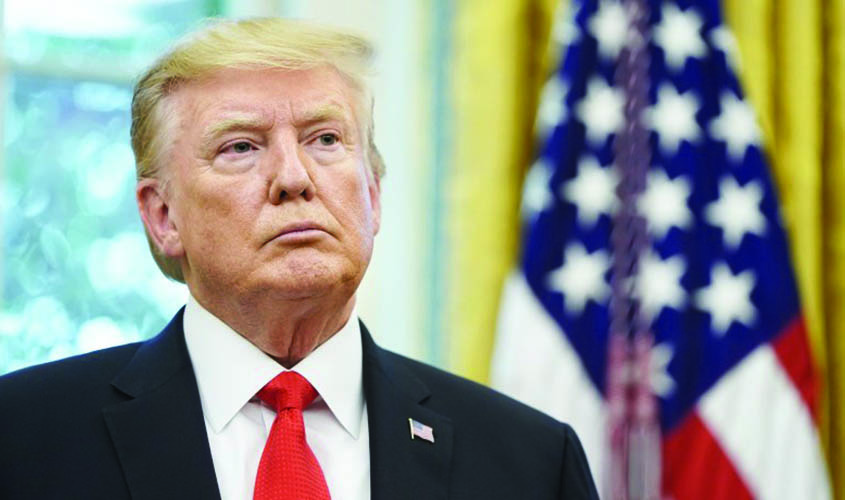Should President Trump succeed in installing the Taliban in Kabul, those zealots would convert Afghanistan into a breeding ground for global terror.
Beginning days after the swearing-in, there has been a ruthless effort by the Clinton machine to repay Donald J. Trump for rescuing Hillary from prosecution by trying to remove him from office through impeachment (or now by ensuring his defeat in the 2020 polls). This has taken its toll on the emotional health of the US President and appears to have influenced his judgement in select policies in ways not compatible with overall US interests. An example was the manner in which he backstabbed (there is no more elegant word for it) the very Kurds who assisted him to largely destroy ISIS in Iraq and who have fought consistently against that scourge in Syria. In this, Trump followed the example of George H.W. Bush, who greenlighted Saddam Hussein’s murderous bombardment of the Kurds by relaxing No Fly Zones so that the Iraqi dictator’s airborne platforms could devastate Kurdish (and Shia) villages. Daladier and Chamberlain forced the Czechs to abandon their fortifications on the border with Hitlerite Germany, and much later Donald Trump tricked the free Kurdish forces into doing the same vis-a-vis their would be destroyer, R.T. Erdogan. For nearly three years as an incumbent President, Trump had been clear-headed about the menace posed to US interests by Wahabbi extremism, and about the need to complete Barack Obama’s attempted pivot from the Atlantic to the Indo-Pacific. The furies of the impeachment process and the continuing farrago of abuse directed against him from much of US media has combined with the incarceration of several of his earliest boosters against the Clintons, such as Roger Stone or General Flynn. This seems to have affected his responses, including the manner in which he cut off the pensions of civil servants such as the FBI’s Andrew McCabe, and deprived access to information of others such as James Clapper for what appears to be political spite. Certainly the two (and several others) backed Clinton over Trump, but penalising them in such a manner has created a precedent that will draw a shadow across the functioning of the entire (still largely effective) functioning of the US bureaucracy. The tenure of Donald Trump can be divided into two periods, the second beginning last year when the hailstorm of abuse and persecution of the 45th President of the US clearly began to tell on some of the decisions he has made. This has been a period witnessing unexpected policy disasters, especially in the Global War on Terror.
It was Jimmy Carter whose National Security Advisor Zbigniew Brzezinski came up with the plan to prod the Saudis royals into putting Wahhabism on steroids, so as to create via GHQ Rawalpindi a volunteer pool of extremists that was sent into battle with Soviet occupiers in Afghanistan. Had Carter or Reagan switched responsibility for operations against Soviet occupiers to Pashtun and other moderate Afghan nationalists rather than to Wahhabi extremists, the world would have been spared much of the horrors and insecurities that it has since endured. Given the culture of denial of culpability that is a characteristic of the Atlanticist world, Carter-Reagan’s invaluable contribution to the still spreading global stain of theological extremism has not only not been condemned, but in Jimmy Carter’s case was rewarded with a Nobel Peace Prize in 2002. The policies adopted by President Clinton facilitated the rise of China to superpower status. It also created the grounds for the hollowing out of the US financial and manufacturing sectors and it was therefore a surprise when Clinton’s policies were overall followed by George W. Bush as well in a manner that was more comprehensive than a President Al Gore would have done. Bush followed Carter, Reagan and Clinton in outsourcing Afghan policy to the Pakistan army, just as China seems to have outsourced its border policy towards India to the same force. Obama sought to distance the US from such a toxic course but was held back by the dominant Clinton strain within the policy DNA of his administration. Initially, President Trump sought a course correction, but has in his “post-trauma of abuse” stage reverted to treating GHQ Rawalpindi as the protector not just of the extremists (which it is) but of the Afghan people, who have since the horror days of the Taliban increasingly reverted to their earlier moderate chemistry. Should Trump succeed in “doing a Clinton” and installing the Taliban in Kabul, that collection of zealots would soon convert Afghanistan into the same breeding ground for extremism that it earlier was under the same group.
Low oil prices are unlikely to be a market phenomenon that will soon disappear. At best, a new normal to the south of $50 a barrel will get stabilised. This would present a challenge for the ruling houses of the GCC, and is certain to cause considerable economic pain and consequent societal distress. Given the encouragement now given to the Wahhabi International by President Trump (under his newfound mentor Erdogan), this economic distress is likely to lead to waves of recruitment of armed extremists who would fan out into several countries, including in Europe, parts of the Middle East and Afghanistan. A Taliban-controlled Afghanistan, no matter what Khalilzad-style corporate lobbyists in the guise of strategic thinkers may say, would once more be a welcoming destination for such elements from across the world. They would be assisted by the ultra-Wahhabis in GHQ, who have long been expert in hiding themselves behind the comforting camouflage label “moderates” within that military, this time silently as opposed to openly during the period since 1979, barring a few interludes when Musharraf was able to persuade the Pentagon that GHQ had become a pussycat. Turmoil in the Middle East will lead once again to a Taliban-controlled Afghanistan becoming the global factory of terror. This is what Donald Trump’s going the Clinton way on the Taliban would mean for the world.

